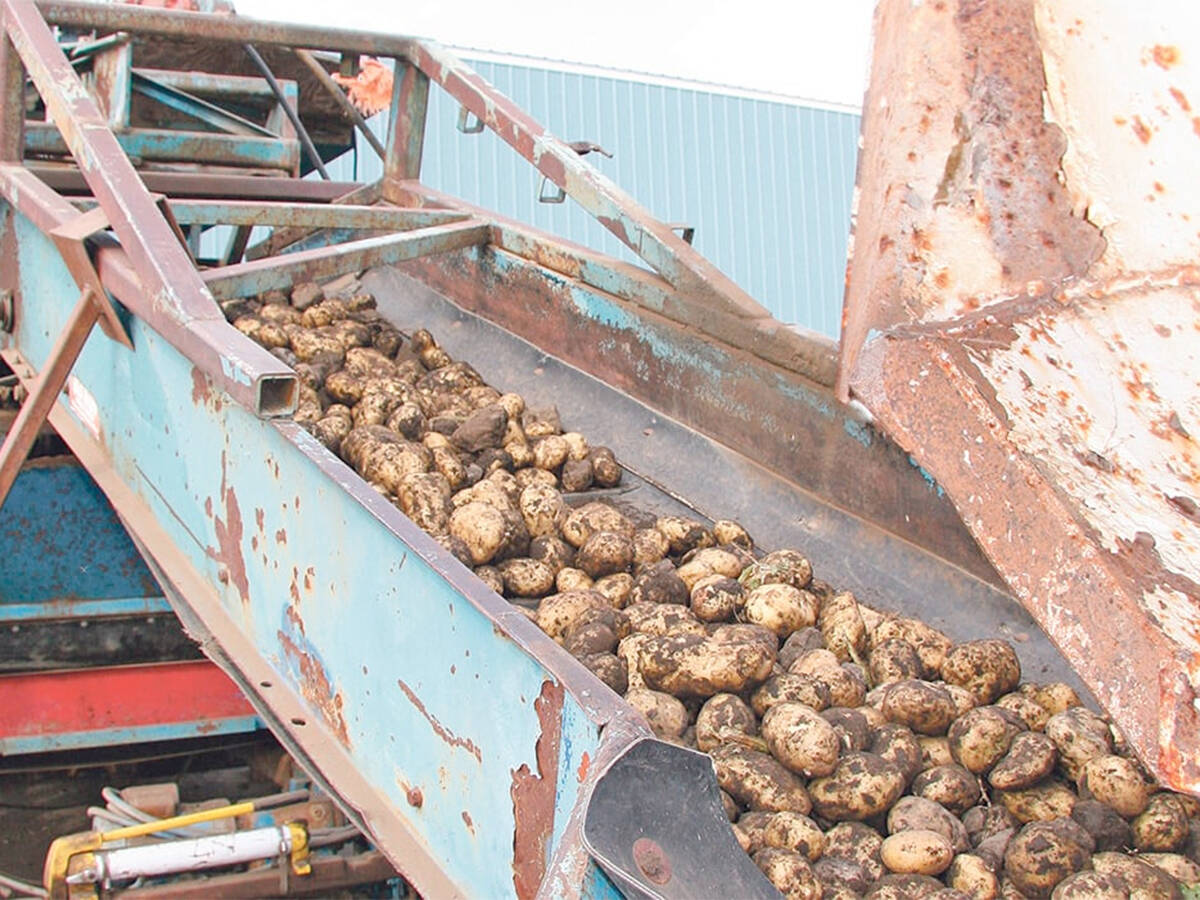The Canola Council of Canada is celebrating a new memorandum of understanding after wrapping up a trade mission to China.
Speaking from Beijing, canola council president Jim Everson emphasized the importance of the Chinese market for Canadian canola producers and processors.
“We are just at the end of what we think is a very successful mission for the canola industry and promoting canola here in China,” Everson said. “This agreement signals the start of a new relationship with Chinese importers based on co-operation to support mutually beneficial trade.”
Read Also

Potato growers beware new PVY strains
Newer strains of potato virus Y (PVY) are creating headaches for potato farms in Eastern Canada, and Manitoba farmers should pay attention
The memorandum includes provisions such as communicating on regulations affecting trade and working together to facilitate industry meetings and exchanges. It was signed by the Canola Council of Canada and the China Chamber of Commerce of Import and Export of Foodstuffs, Native Produce and Animal By-Products.
“The memorandum of understanding is one that is a co-operative arrangement to share information back and forth between the canola council and the CFNA… to co-operate in different events that we might be holding in Canada and they might be holding in China,” Everson said. “There were no commitments at all with respect to volume or any kind of guarantee from that point of view.”
The memorandum will also help the council and its counterparts in China fully understand the impact of Chinese policies, laws and regulations, he said.
Agriculture and Agri-Food Minister Lawrence MacAulay witnessed the signing and participated in several of the canola industry events organized by the council, Everson added.
“We are very thankful for the leadership that Minister MacAulay has taken in bringing a large number of Canadian ag representatives here to China for our mission here and particularly for participating in a number of the events in support of the canola industry while he was here,” he said.
The trade mission included the first-ever Canola Dialogue, a half-day event bringing together more than 60 industry and government representatives, including the Chinese inspection agency, its Agriculture Ministry, Commerce Ministry, biotechnology regulators and major importers.
China’s crush capacity has increased in recent years, but Chinese buyers are still apt to favour soybeans over canola for livestock feed. According to the U.S. Department of Agriculture, China is expected to import 97 million tonnes of soybeans in 2017-18.
Bruce Jowett, vice-president of market development for the council, said the organization also held two events in Guangzhou during the trade mission, the first of which promoted canola meal.
“What they were able to do is share with the feed manufacturers… the role that canola meal can play in a ration for swine. I think it was pretty new news to those in attendance,” he said.
The second event in that city promoted the nutritional benefits of canola oil.
“It was primarily a media group that was in attendance, we’ve already seen up to eight stories being published on oil and the benefits of it, we also had the minister do some food preparation with a chef, just to show the ease and some of the attributes,” Jowett said. “It will increase the awareness of oil in this important market.”
While the perennial issue of blackleg was also raised during the trade mission, Everson said both Canada and China continue to research the issue and that trade will continue under existing terms until at least 2020.
“The subject came up, but really only in terms of going over again or repeating the commitment that we have each made… to taking efforts jointly to mitigate against any kind of concerns with blackleg being transferred from Canada to China,” he said, adding an additional memorandum of understanding is in the works regarding the issue.
The United States remains Canada’s largest export market for canola, but China is the second-largest export market for canola and canola products worth $2.7 billion in 2016.
China imported 4.8 million tonnes of Canadian canola in 2016, including 3.5 million tonnes of seed, 600 thousand tonnes of oil and 660 thousand tonnes of meal.














